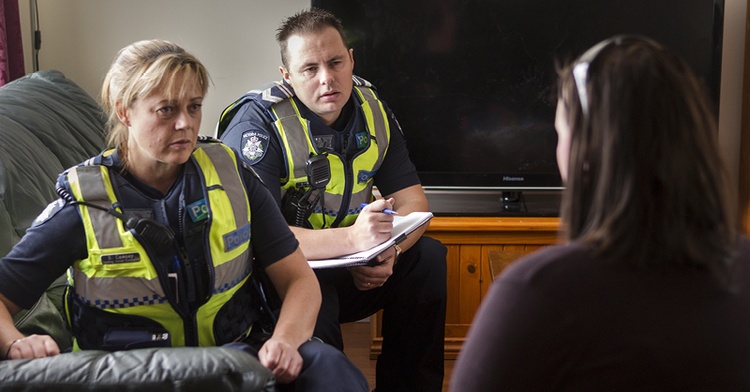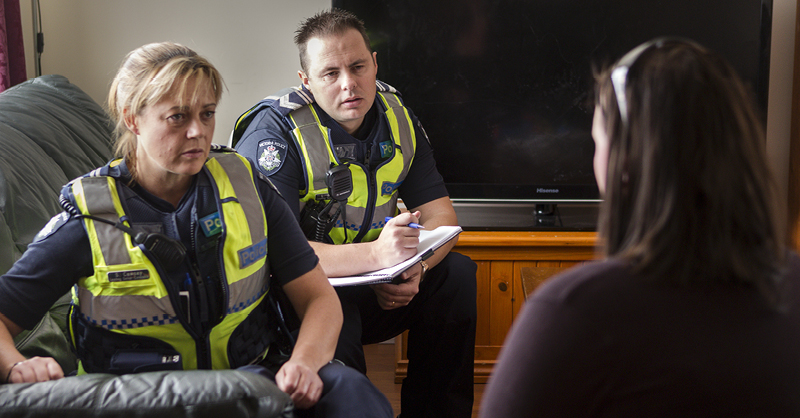Victoria Police recently launched videos in multiple languages to encourage people from culturally and linguistically diverse communities to come forward and protect themselves or their loved ones during this unprecedented time.
The videos are available in English and 12 other languages: Arabic, Burmese, Chinese (Simplified and Traditional), Dari, Farsi, Greek, Italian, Punjabi, Macedonian, Turkish and Vietnamese.
They will soon also be available in an additional 13 languages: Hindi, Pashto, Khmer, Korean, Japanese, Serbian, Sinhalese, Spanish, Tamil, Thai, Malay, Somali, Russian and Polish.
Assistant Commissioner of Family Violence Command Dean McWhirter acknowledged the currently challenging times for the community and highlighted the different ways victims could seek support.
“People may be particularly vulnerable during these times as the community stay at home to prevent the spread of coronavirus, but home might not always be the safest place to be,” AC McWhirter said.
“We are releasing these videos to remind everyone in our community that Victoria Police continues to help people if they feel unsafe.
“Everyone in our community should have information about the services available to them, especially in these particularly stressful times.”
The videos are available in Italian
Family violence is an underreported crime in general, and people from culturally diverse backgrounds may face additional barriers in reporting this crime to police.
Current social distancing and isolation rules enforced in a bid to curb the spread of coronavirus may make it even more challenging for victims to report family violence incidents.
Leading Senior Constable Silvano Rinaldi said while current figures don’t indicate a significant increase in the number of family violence incidents compared to the same time last year, that is likely due to underreporting.
“It could be because, due to social distancing, the victim is in the presence of the perpetrator more often and they may be relying on the perpetrator for financial support and so have fewer opportunities to reach out for help including from their social network,” he said.
“We think that might be a reason why that is occurring.”
Through initiatives like the multilingual videos, Victoria Police are hoping to encourage victims to access some of the organisations that provide support for the community, such as safe steps or inTouch.
The former is available 24/7 to provide assistance over the phone or via email, while the latter provides support services to women from multicultural backgrounds, including migrant and refugee women living in Victoria, who are experiencing or have experienced family violence.
“The organisations can provide advice on planning a safe strategy and also emergency accommodation and assistance,” L/Snr Cst. Rinaldi said.
When it comes to language barriers, L/Snr Cst. Rinaldi stressed that whether victims contact Victoria Police directly, or one of these organisations, they will be able to speak with someone in their preferred language if necessary.
“We have that in place already, so if someone contacts us and they’re struggling with English, we will certainly put them on to the appropriate interpreter who can then connect them directly with emergency services or the support organisations,” he said.
“Victims must be reassured that we will provide those facilities for them if they’re not fluent in English.”
He also urged people who are aware of family members who are suffering or at risk of family violence under these circumstances to come forward and make a report on behalf of their loved ones.
“Anyone who has concerns for a family member can reach out in a way that’s not only safe for the victim but also safe for them, and make a report on their behalf,” he said.
Family violence is defined as “behaviour by a family member that creates fear and control over their partner, ex-partner, children, other family members and carers who are like family members”.
It’s important to note that family violence includes but is not limited to physical assault or sexual abuse.
It also refers to: economic abuse, such as withholding money, preventing a person from gaining employment, property damage, or dowry-related abuse; psychological and/or verbal abuse, such as threats, repeated put-downs, name-calling, and sexist, racist, ageist, ablest or homophobic abuse; and causing a child to hear, see or be aware of violent acts.
If you suspect someone you know is suffering from family violence, there are some signs you can look for.
“You could look at subtle changes in behaviour or signs of physical harm and injuries,” L/Snr Cst. Rinaldi said.
“The more intimately related you are, the more you can perceive any changes in behaviour from the victim.”
If a report is made by or on behalf of the victim, they can be assured they will receive both the immediate and long-term assistance they require, including access to accommodation where they will be completely safe, as well as financial support or family services.
“In cases of an emergency, police will attend immediately and intervene in any violent situation,” L/Snr Cst. Rinaldi said.
“They will either remove the perpetrator from the house or certainly assist the victim to seek the services available in terms of emergency accommodation and other financial support services.
“In relation to the support organisations, police will provide information on safe planning, emergency accommodation and support networks.”
The Victorian government last month announced a $40.2 million investment for crisis accommodation and specialist services for people suffering or at risk of family violence.
It includes $20 million in short-term accommodation for family violence victim survivors who do not feel safe isolating or recovering from coronavirus at home, and another $20.2 million to help Victorian family violence services meet the expected increase in demand during the coronavirus pandemic.
“The government has thrown a lot of resources into this so Victorians can be assured that the organisations will go above and beyond what is required to assist people,” L/Snr Cst. Rinaldi concluded.
If you or someone you know is feeling unsafe, visit the safe steps website or call 1800 015 188.
To seek assistance for women from migrant and refugee backgrounds, visit the inTouch website or call 1800 755 988.
In an emergency, always call Triple Zero (000).
For more information about family violence in different languages, visit the Victoria Police website.












